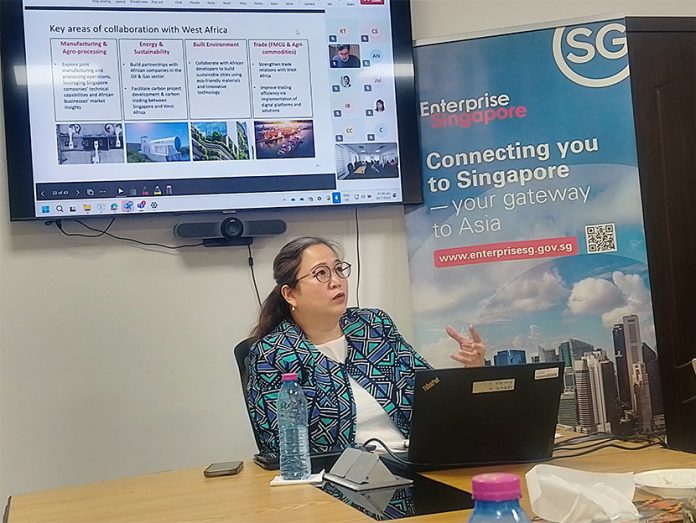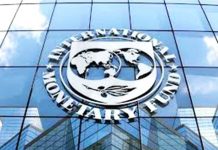Jean Ng, Regional Director for Enterprise Singapore (West, Central, and Southern Africa), has announced upcoming collaboration opportunities for both Ghanaian and Singaporean businesses.
Speaking in Accra last week, Ms. Ng revealed that over 700; businesses and government leaders from Singapore, Asia, and across Africa are expected to attend one of the country’s largest expos, scheduled for August 26 to 28, 2025.
She emphasised Singapore’s openness to doing business with Ghanaian companies seeking to access the Asian market and explore partnerships with Asian firms.
According to her, local Ghanaian products such as shea butter and African black soap have strong potential in Asia, with Singapore serving as a key gateway to the continent.
Ms. Ng also noted that Ghanaian companies looking to adopt new technologies or form strategic partnerships to enhance production are encouraged to engage with Singaporean enterprises.
Enterprise Singapore, she stated, is focusing on four key sectors: built environment, manufacturing and agro-processing, trade, and sustainability and energy.
In manufacturing and agro-processing, the goal is to “explore joint manufacturing and processing operations, leveraging the technical expertise of Singaporean companies and the market insights of African businesses.”
In the area of sustainability and energy, Singapore is offering support in areas such as carbon product development, among others.
While Singaporean businesses already have a presence in Ghana, Enterprise Singapore aims to expand this footprint and create reciprocal opportunities for Ghanaian businesses in Singapore.
Ms. Ng highlighted that because Ghana and Singapore lie along the same equatorial line, Singapore’s building and infrastructure solutions are well-suited for the West African climate. This further drives interest in establishing a stronger presence in Ghana.
Products such as Frytol, Tasty Tom and Indomie instant noodles represent some of the Singaporean manufacturing influence in Ghana.
She added that Singapore is expanding its reach into Africa not only to avoid global trade disruptions and navigate new economic orders but also to diversify its market, as the country has a relatively small domestic consumer base.
Finally, she praised Ghana’s strategic position in West Africa, citing its political stability and ongoing efforts to build infrastructure that supports investment and regional trade.









